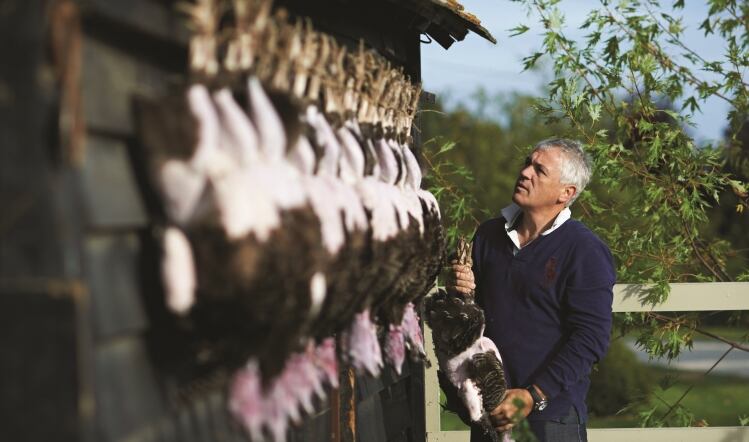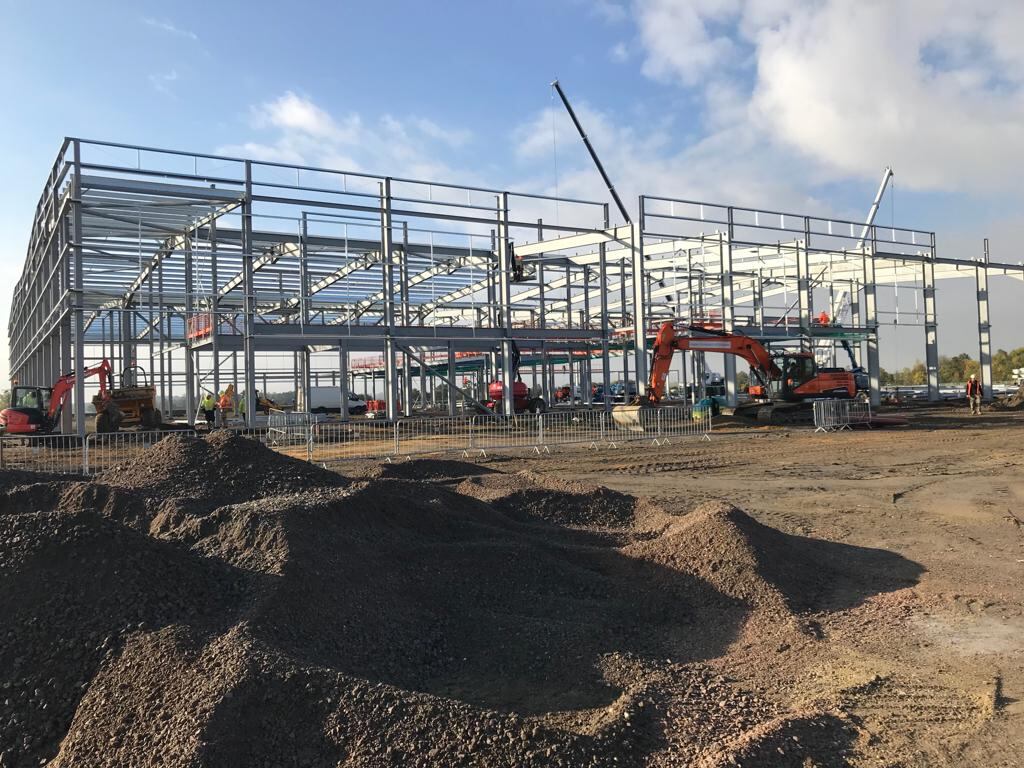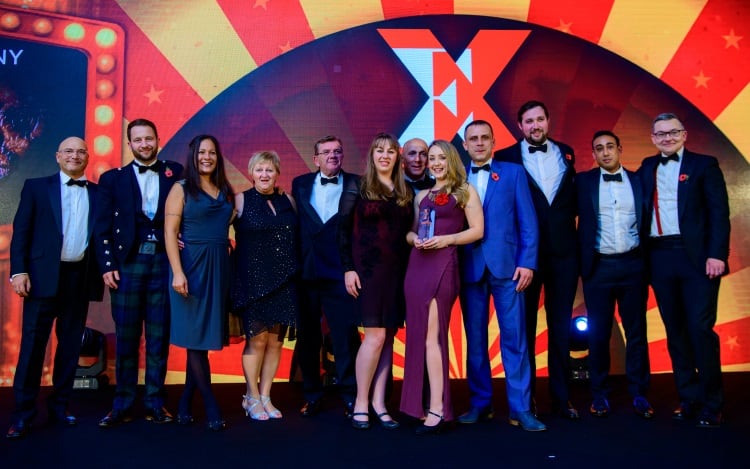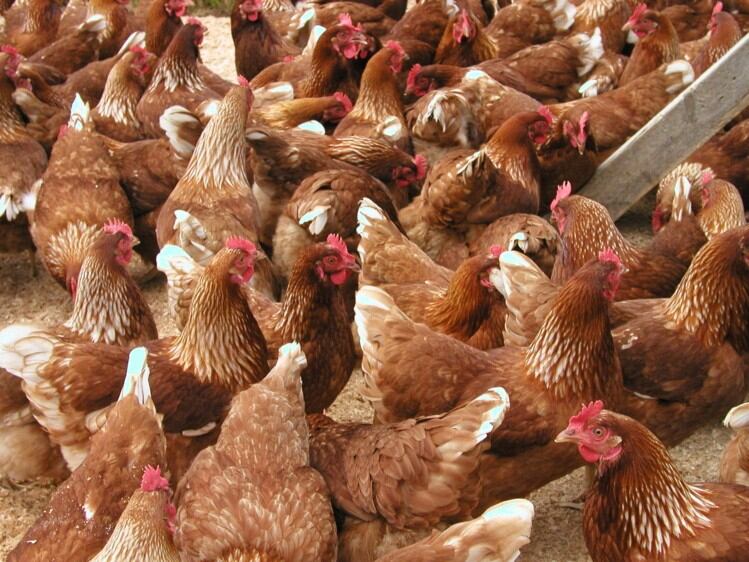Kelly Turkeys is a family-owned business that specialises in bronze turkeys, reared in a way that we think sets us apart from the competition.
My mother and father, Molly and Derek Kelly, started the business in 1971. After working in the poultry industry for many years, my father saw a gap in the market to produce fresh Christmas turkeys.
However, producing great-quality dry-plucked white turkeys was not enough, as the dynamics of the market were changing. In the late ’70s, supermarkets started to sell fresh turkey instead of frozen and our route-to-market through independent butchers was in massive decline. We had to change direction.
The backstory of the bronze turkey and its genetic marker – bronze feather stubs – is what we needed to differentiate, along with a far superior specification and finished turkey. By 1984, we had sought out the last remaining pure bloodlines of bronze turkey in the country and started breeding and rearing them under the KellyBronze brand.
Today, we still run the family farm in Essex, but have businesses in Europe – and in 2015, we bought a farm in Virginia. We are the only US farm with a US Department of Agriculture licence to hand-pluck our turkeys.
Unparalleled luxury
All of our birds are free-range and have the unparalleled luxury of living through every season. They forage in their natural woodland habitat on the farms and are matured to more than twice the age of a standard industry turkey.
This more than doubles the farming costs, but means that they are an average of six-months-old for Christmas, as opposed to 12 weeks. The birds are then hand-plucked and dry-hung at a specific, controlled temperature to tenderise – all resulting in a truly supreme taste experience.
Our dry-plucking methods are very labour-intensive because, as yet, there is no way of removing feathers without the use of water, which we cannot employ as we dry-age the turkeys.
Investment in expensive automation is very hard for us to justify as we only process turkeys for six weeks of the year and we cannot get the return on investment needed.
However, we have invested over £1.2m in the past 24 months – mainly in refrigeration and new hanging and maturation chambers. Also, we have embraced online technology and e-commerce much more than our direct competitors. Over 90% of every retail order we take is through our website.
Involved in the business
I have always been involved in the business, plucking turkeys from the age of seven, but I came back on board full-time in 1984 after earning diplomas in business studies and poultry science.
I had ambitions to own a string of wine bars and nightclubs, but I settled for the next best thing – which is obviously turkey farming! The early ’80s were a tough time for our fledgling business, but I don’t regret one minute of it. We were the pioneers of bronze free-range turkeys and pioneers have exciting experiences.
In the early days, we had no staff and, therefore, I didn’t really learn how to work in a team. I was undoubtedly not a very good delegator in those early years, but have certainly learnt now. I am a big believer in allowing people to do their job with very few reporting processes along the way.
We have a very flat management structure, with the attitude that whatever has to be done will be done by all means necessary. We also have a very healthy and transparent bonus scheme that everyone benefits from.
Disease is the single biggest threat to our business, as it is for anyone in the livestock sector. Our next concerns are seasonal labour and having access to the EU labour market.
Focused on Christmas
So far, Brexit hasn’t impacted our business or sales and I believe this is because we are currently focused on Christmas, which tends to be fairly recession- and spend-proof. The future of our labour force, however, is a worry.
We’ve had the same fantastic workers return annually from eastern Europe where seasonal labour is normal, but this year, 15 20% of them haven’t come back because their future in the UK is no longer secure. If we are unable to get European migrant labour we will be forced to downsize the UK business and focus on Germany and the US.
We are planning to move around 10% of our breeding stock to the Netherlands and Germany to safeguard our European business. We can’t risk keeping all our production in the UK with the threat of paying tariffs and experiencing issues and delays at the borders. Essentially, Europe is a huge part of our agricultural business, so we certainly want a customs union, and for European workers to have easy access to the UK.
Demand for premium Christmas turkeys continues to grow, and we remain committed to new product development – with a cooked and charcuterie range in the pipeline.
Ultimately, consumers want good honest produce from a supplier they trust, and the perception of the local farmer ticks those boxes. Producing food for Christmas is a great market to be in.
Kelly Turkeys
Location: Springate Farm, Bicknacre Road, Danbury, Essex. CM3 4EP
Factory size: 2,800m2
UK turnover: £15.2m
Staff: 95
Main products: Whole turkeys.
Customers: Independent butchers and home delivery.
Production output: 400 turkeys an hour. 54,000 turkeys a year.
Paul Kelly: Is a National Farmers’ Union council member, and is on the British Poultry Council board. He has Guinness World Records for plucking and carving turkeys.




